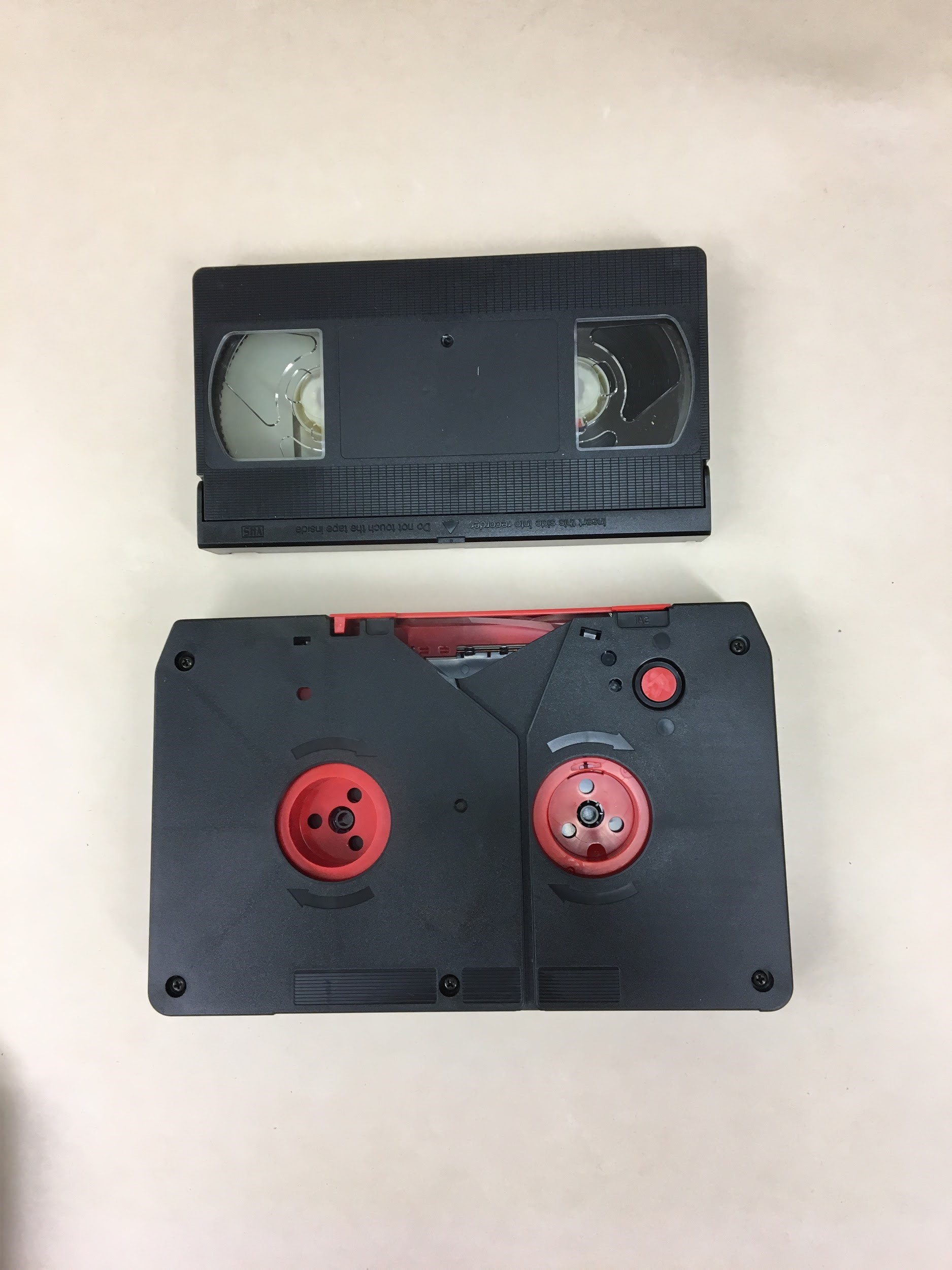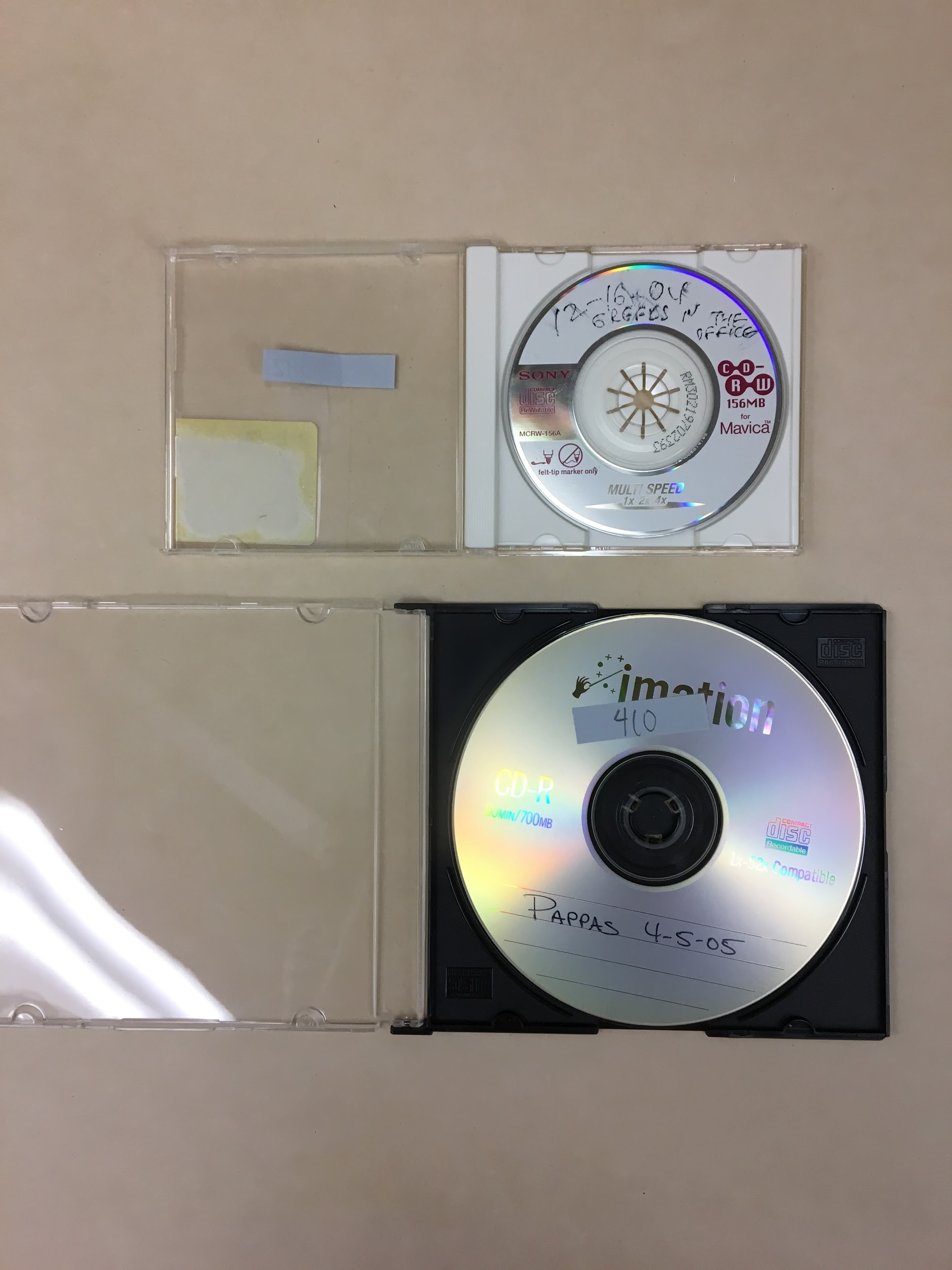I started at the WLA in January as an undergraduate volunteer intern and was very happy to be asked to stay into this summer as well. I am now going into my senior year and my work in the archive has taught me a lot about how history can be much more recent than I may have once thought.
For the past several months I have been working on processing a collection from the Cook County Treasurer, Maria Pappas. Maria Pappas has been a part of Cook County government since the early 1990s and started off that Cook County-based career with a PhD in counseling and psychology from our very own Loyola University Chicago. Pappas’ longevity in office has been documented not only in news articles, but in TV and radio appearances, which, wouldn’t you know it, have been preserved on VHS, a novelty for this 21 year old intern. Like many bygone technologies, like the CD player, Walkman, Nokia phones, and even an original iPhone, I thought VHS and audio cassettes were a thing of the past that would never cross my path again. Imagine my surprise when the first box that I went through from Maria Pappas’ donation contained nothing but VHS tapes, and not only that, but they were still watchable!
Although I knew what archives involved, in my imagination it always meant that I would be carefully handling decades, if not centuries old, journals and pictures. With this idea in mind, going through VHS tapes and CDs, objects from my childhood that now seem far outdated, has shifted my perspective of archives, and of history as a whole. With Maria Pappas’ progression through her career, the technology used to preserve her experience also progresses and changes, shifting from U-Matic tapes, cassettes, and VHS to CDs and MCRW discs. Being able to physically see a progression of time, not only in the contents of these media forms, but also in the media forms themselves adds another level to the understanding of how quickly history and technology can change. Most notably, it was surprising to come across technologies in the Pappas collection that I knew nothing about, like U-Matic tapes and MCRW discs. These technologies evolved and became outdated quickly, and were used in such small niches that their usefulness was quickly replaced by another form of technology.

Media found in the Maria Pappas papers.

Media found in the Maria Pappas papers.
With the physical evidence of the longevity of Maria Pappas’ career in front of me in these different types of multimedia, actually going through the documentation and reading about her career and outreach programs over the years made the extent of her career seem more emphasized. Maria Pappas began as a member of the Cook County Board of Commissioners in 1990, then ran for Cook County Treasurer in 1998, a position she has held since then, and is the current incumbent for. Maria Pappas is credited with reorganizing the Cook County Treasurer’s office, which had been losing checks and improperly documenting interactions and notices for years before Maria Pappas was elected to the position.
After organizing the Cook County Treasurer’s office, Maria Pappas began her Treasurer’s Outreach Program and Services, in which she published property tax brochures in several languages and reached out to many different cultural communities in Chicago and the surrounding areas in order to make property tax payment information more accessible. Cook County is an incredibly diverse area and one that has $12 billion in property taxes collected annually. With this diversity in mind, Maria Pappas has ensured that she has efficiently informed all of the community members, displaying her understanding of the importance of progress and helping people in what some may see as atypical ways. Her impressive career and record is well documented, on paper, on VHS, and online, displaying the progression of a well-rounded career, as well as the advancement of technology and the advancement a community along with that career.
Amela is an intern at the WLA and has been working with the Cook County Treasurer, Maria Pappas’ collection. She is an undergraduate majoring in History and Environmental Science at Loyola and is an avid dog lover who sadly does not have one of her own yet, but will not let you walk past a cute one without letting you know.
Loyola University Chicago’s Women and Leadership Archives Blog is designed to provide a positive environment for the Loyola community to discuss important issues and ideas. Differences of opinion are encouraged. We invite comments in response to posts and ask that you write in a civil and respectful manner. All comments will be screened for tone and content and must include the first and last name of the author and a valid email address. The appearance of comments on the blog does not imply the University’s endorsement or acceptance of views expressed.
